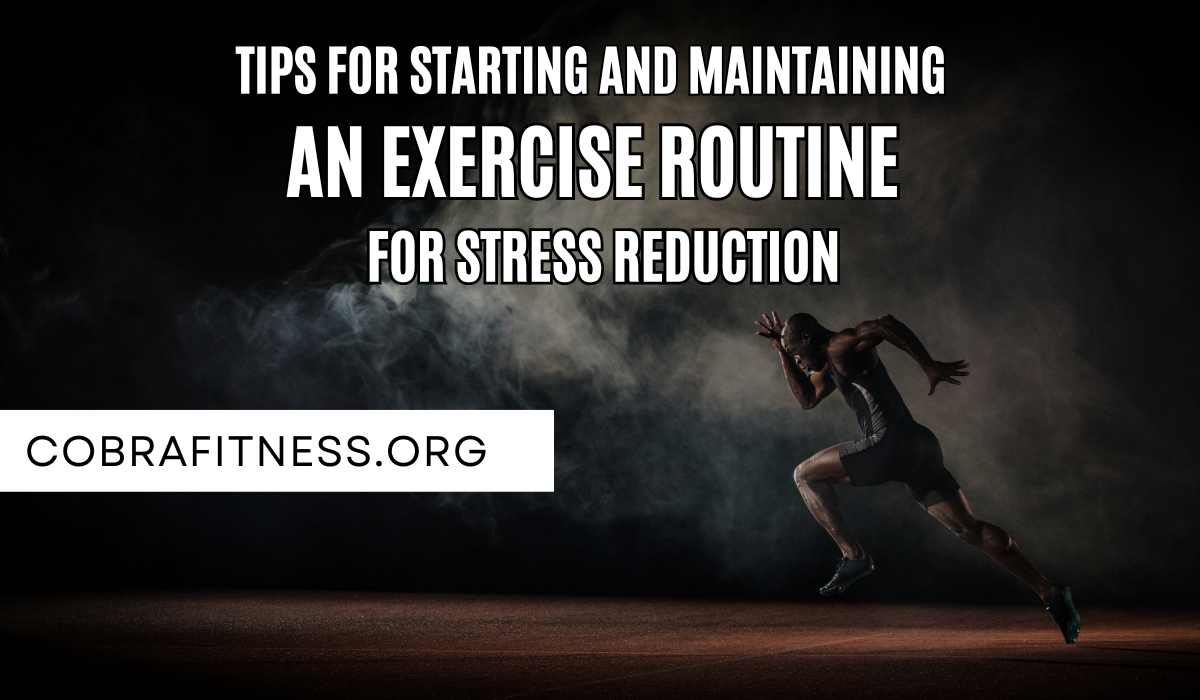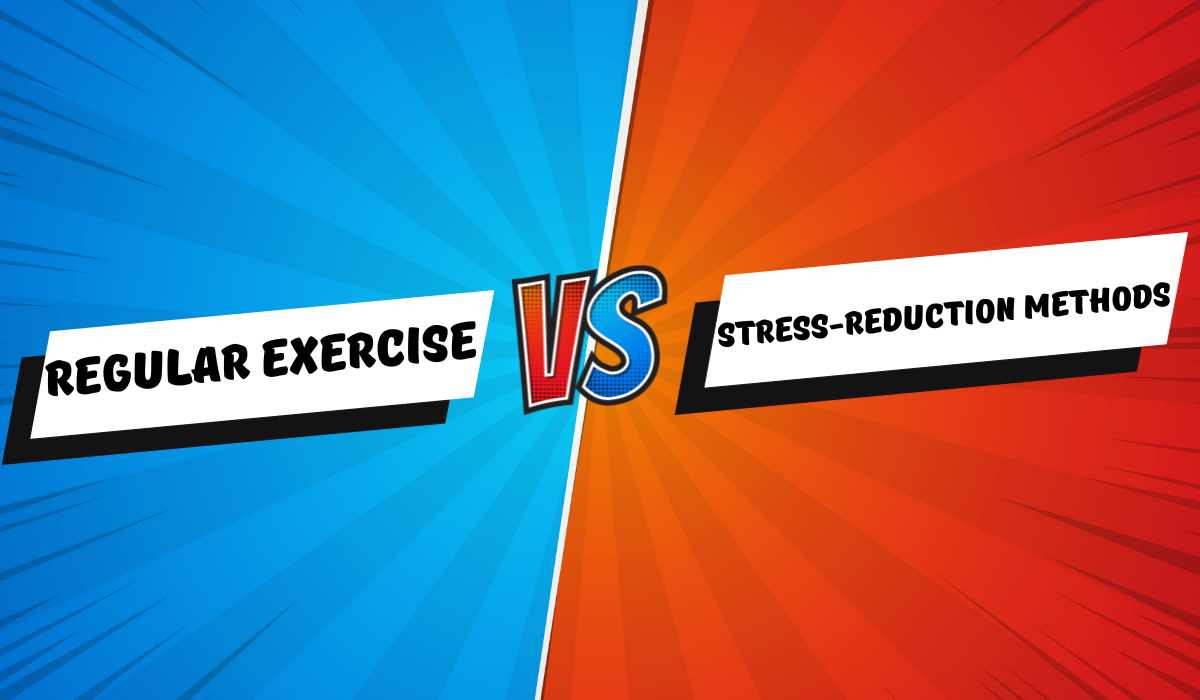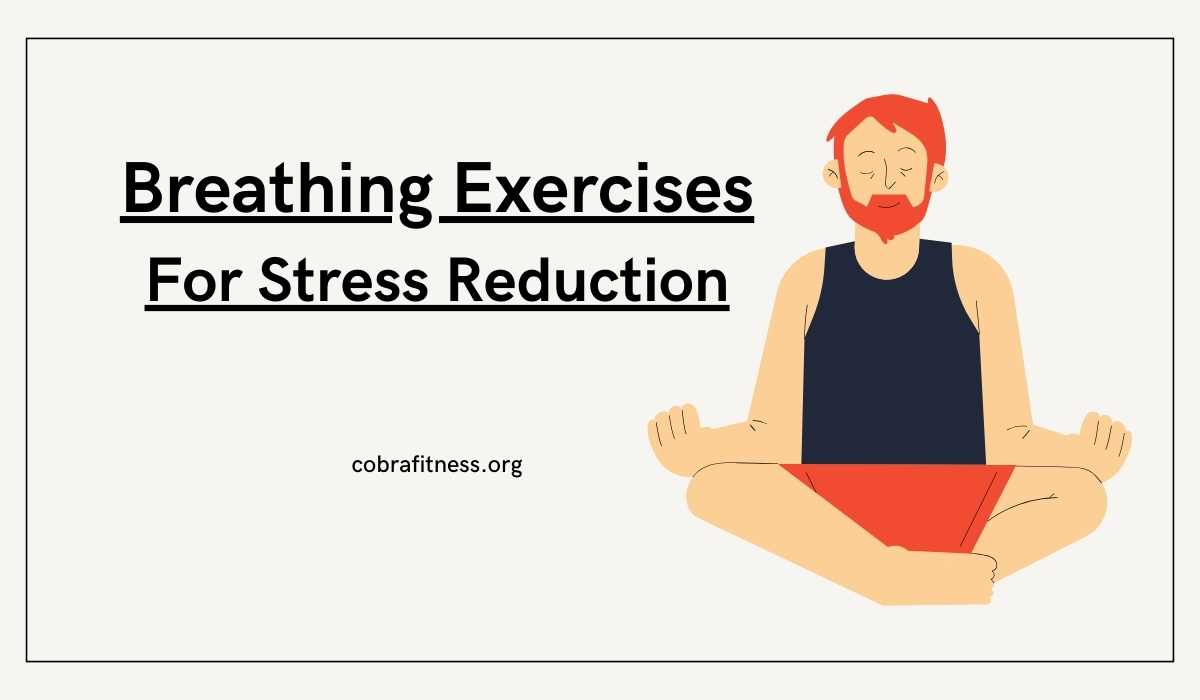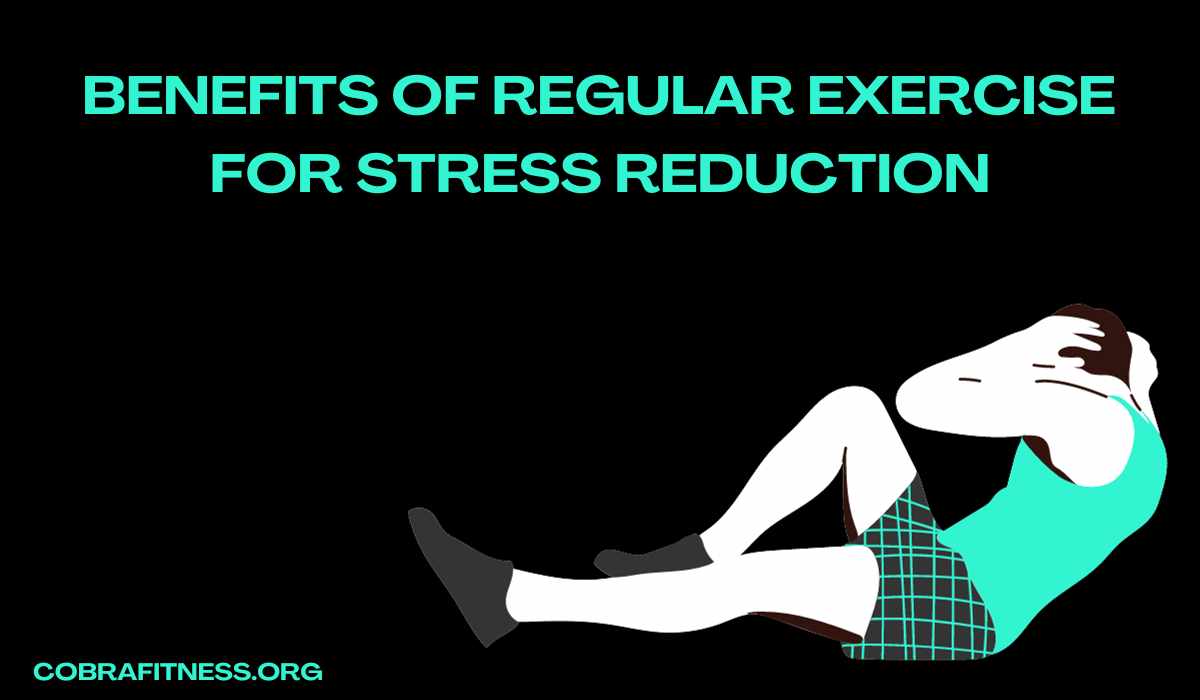How does regular exercise reduce stress Weegy? It’s a million dollar question because we all experience stress in our daily lives and it can have a significant impact on both our mental and physical health. Did you know that exercise can be a game changer when it comes to managing and reducing stress levels?
In this article, we will delve into the science behind how regular exercise reduces stress. Furthermore we’ll explore the various benefits of regular exercise for stress reduction and provide some helpful tips for including exercise in your daily routine.
How does regular exercise reduce the effects of stress on our bodies?

First, let’s understand how does regular exercise reduce stress weegy. Exercise acts like a magic pill for stress reduction. When we engage in physical activity, our bodies release endorphins, also known as natural mood boosters, that counteract the negative effects of stress by promoting feelings of happiness and relaxation.
In addition to the release of endorphins, exercise also helps to regulate cortisol levels in the body. Cortisol is often referred to as the “stress hormone” because it is released in response to stressful situations.
When cortisol levels remain high for extended periods due to chronic stress, it can have detrimental effects on both our mental and physical health.
Regular exercise has been shown to lower cortisol levels in the body, thereby helping us better manage and cope with stress. It provides an outlet for built-up tension and allows us to channel our energy into something positive.
Furthermore, engaging in regular exercise promotes improved sleep quality. Sleep deprivation can contribute to increased feelings of stress and anxiety, so by getting enough restful sleep through regular exercise, we are better equipped to handle stressful situations throughout the day.
Moreover, exercise stimulates the production of neurochemicals like dopamine and serotonin, which play key roles in regulating mood and emotions. These chemicals not only help us feel happier but also promote relaxation and combat feelings of stress or tension.
In addition to these biochemical changes within the body, exercise also provides an opportunity for distraction from daily worries or sources of stress.
Whether it’s going for a run outside or taking a yoga class at your local gym, focusing on physical activity allows our minds to shift away from stressful thoughts or situations temporarily.
Types of Exercises That Can Help to Reduce Stress weegy

But what types of exercises are most effective in helping to reduce stress? This is a common question, and let’s try to find out.
Aerobic exercise:
One type of exercise that can help reduce stress is Aerobic exercise. Aerobic exercises get your heart rate up and increase the production of endorphins, which are known as “feel-good” hormones. These endorphins can help improve mood and reduce feelings of stress and tension.
Here is a list of some common Aerobic exercises:
- Running
- Swimming
- Cycling
- Walking
- Jump Rope
- Kickboxing
- Rowing
- Hiking
- Climbing Stairs
Strength training exercises:
Strength training exercises are also beneficial for reducing stress. Lifting weights or using resistance bands helps build muscle strength and releases pent-up energy and tension in the body.
Here is a list of some common Strength training exercises:
- Squats
- Push-Ups
- Deadlifts
- Pull-Ups/Chin-Ups
- Planks
- Dumbbell Rows
- Bicep Curls
By focusing on the physical exertion required during strength training, you can redirect your thoughts away from stressful situations.
Yoga:
Yoga is another form of exercise that is effective in reducing stress levels. The combination of gentle movements, deep breathing techniques, and mindfulness practices help to calm both the mind and body. Yoga promotes relaxation and self-awareness while improving flexibility and balance.
Pilates:
The last exercise which we are going to discuss is Pilates. Pilates is another low-impact exercise option that can aid in stress reduction. By emphasizing controlled movements and proper alignment, Pilates helps to release tension from different areas of the body while promoting core strength and stability.
Here is a list of some common Pilates exercises:
- The Hundred
- Roll-Up
- Single Leg Circle
- Rolling Like a Ball
- Single Leg Stretch
- Double Leg Stretch
- Plank
Most importantly, Finding an exercise routine that you enjoy is key when it comes to managing stress levels effectively. Whether it’s going for a run outdoors or attending a group fitness class at the gym, choosing activities that bring you joy will make it easier to stick with them long-term.
Always remember every person is unique! So do experiment with different types of exercises until you find what works best for you in terms of reducing stress.
Tips for starting and maintaining an exercise routine for stress reduction

Starting and maintaining an exercise routine for stress reduction can be a challenging task, but with a few helpful tips, you can set yourself up for success.
Here are some tips to help you get started:
- It’s important to choose activities that you enjoy. Whether it’s going for a run, practicing yoga, or dancing, find something that brings you joy and allows you to release stress. This will make it easier to stay motivated and committed to your exercise routine.
- Start slow and gradually increase the intensity of your workouts. Pushing yourself too hard in the beginning can lead to burnout or injury. Set realistic goals and listen to your body. Remember, consistency is key when reaping the benefits of exercise for stress reduction.
- Find an accountability buddy or join a fitness class or group. Having someone else who shares similar goals can provide motivation and support along the way. Plus, exercising with others can make the experience more enjoyable.
- Fourthly, set aside dedicated time in your schedule for exercise. Treat it as an important appointment with yourself that cannot be canceled or rescheduled easily.
Additionally, you may need reminders like setting alarms on your phone, to keep track of your regular exercise to reduce stress weegy. Last but not least, don’t forget about rest days! Giving your body time to recover is just as important as staying active.
By implementing these tips into your daily routine, you’ll be well-equipped to start and maintain an effective exercise regimen aimed at reducing stress levels.
Comparing Regular Exercise with Other Stress-Reduction Methods

Regular exercise is often popular as one of the most effective ways to reduce stress weegy, but how does it compare to other stress-reduction methods? Let’s take a closer look.
- Meditation: Many people turn to meditation and mindfulness practices as a way to reduce stress weegy. These techniques involve focusing attention on the present moment and developing a sense of calm.
- While meditation can be incredibly beneficial for managing stress, it may not provide the same physical benefits that exercise does.
- Deep breathing: Another popular method for reducing stress is through relaxation techniques such as deep breathing exercises or progressive muscle relaxation.
- These techniques can help relax both the mind and body, promoting feelings of relaxation and calmness. However, they may not offer the same long-term benefits that regular exercise provides.
- Hobbies: Some people find comfort in engaging in hobbies or activities that bring them joy and help them unwind. Whether it’s painting, gardening, or playing an instrument, these activities can be excellent outlets for relieving stress.
While there are many different approaches to managing stress, regular exercise stands out for its ability to address both mental and physical health.
Exercise releases endorphins, chemicals in our brain that, as mentioned earlier, act as natural painkillers and mood elevators. This can help combat feelings of stress and depression.
Additionally, exercising regularly helps improve cardiovascular health by strengthening the heart muscle and improving blood flow throughout the body. This improved circulation can lead to better overall health and increased energy levels.
Breathing Exercises as a Complement to Exercise for Stress Reduction

Breathing exercises are a simple yet effective way to complement your regular exercise routine for stress reduction. These exercises can be done anywhere, at any time, making them easily accessible and convenient for those seeking exercise to reduce stress weegy.
- Deep diaphragmatic breathing: One popular breathing technique is deep diaphragmatic breathing. This involves taking slow, deep breaths by expanding your abdomen as you inhale and then exhaling fully.
- Deep diaphragmatic breathing helps activate the body’s relaxation response, which counteracts the effects of stress on the body.
- Box breathing: Another beneficial breathing exercise is box breathing. With this technique, you inhale slowly to a count of four, hold your breath for a count of four, exhale slowly to a count of four, and then hold your breath again for a count of four before repeating the cycle.
- Box breathing helps regulate your nervous system and promotes feelings of calmness and relaxation.
In addition to reducing stress levels, including these breathing exercises in your daily routine can also improve focus and concentration while enhancing overall health. When combined with regular exercise such as walking or yoga, these techniques can further enhance their effectiveness in reducing stress.
Benefits of Regular Exercise for Stress Reduction

Regular exercise offers many benefits for stress reduction. Let’s explore some of them.
- When we engage in physical activity, our bodies release endorphins, which are natural mood boosters that help to alleviate stress and promote feelings of happiness and well-being.
- Exercise also increases the production of serotonin, a neurotransmitter linked to improved mood and reduced stress weegy.
- In addition to boosting our mood, regular exercise can also improve our sleep patterns. People who exercise regularly tend to fall asleep faster and experience deeper, more restful sleep. This is important because lack of sleep can contribute to increased stress levels.
- Furthermore, engaging in regular exercise helps to reduce muscle tension caused by chronic stress. When we’re stressed, our muscles tend to tighten up, leading to discomfort and pain. Exercise loosens these tense muscles and promotes relaxation throughout the body.
- Another benefit of regular exercise for stress reduction is its ability to provide an outlet for pent-up emotions or frustrations.
- Engaging in physical activity allows us to channel negative energy into something positive while providing a healthy distraction from daily worries.
- Moreover, participating in group exercises such as yoga classes or team sports can offer social support and create a sense of community.
- Connecting with others who have similar interests not only provides emotional support but also encourages accountability and motivation when it comes to maintaining an exercise routine.
Long-Term Effects of Regular Exercise on Stress Reduction

Regular exercise not only provides immediate relief from stress but also has long-term effects on managing stress. When we engage in physical activity consistently over time, our bodies and minds become more strong to the effects of stress.
One of the long-term benefits of exercise is its ability to improve our overall healthy lifestyle. When we make exercise a habit in our daily routine, we are more likely to adopt other healthy habits such as eating nutritious food and avoiding harmful substances like excessive alcohol or tobacco use. These positive lifestyle changes contribute significantly to reducing stress.
Including regular exercise in your life can have serious long-term effects on how you manage stress. Not only does it provide immediate relief by releasing endorphins but it also boosts your mood, enhances cognitive function, improves sleep quality, and encourages a healthier lifestyle, all factors that contribute to building strength against future stresses.
Personal Stories or Research Studies

Many personal stories and research studies have highlighted the positive impact of regular exercise on reducing stress levels.
A study conducted at the University of California, Los Angeles found that engaging in physical activity increased the production of endorphins, which are natural mood-enhancing chemicals in the brain. Participants reported feeling less stressed and more relaxed after just a short workout session.
In this context, we would like to share the personal story of Sarah, a working professional who has shared her experience with exercise as a stress reliever.
She mentioned how including daily walks into her routine helped clear her mind and relieve stress. Sarah also noticed improved sleep quality and an overall boost in her mood since she started exercising regularly.
Research has also shown that exercise can improve cognitive function and reduce symptoms of depression and stress. A study published in The Journal of Clinical Psychiatry found that people who participated in aerobic exercises experienced significant reductions in depressive symptoms compared to those who did not engage in physical activity.
These personal stories and research studies provide evidence for the powerful effect that regular exercise can have on reducing stress levels. Whether it’s going for a run, practicing yoga, or playing sports, finding an enjoyable form of exercise can greatly contribute to managing stress effectively.
Wrapping Up
We deeply explored how does regular exercise reduce stress weegy. Regular exercise is not just beneficial for physical health, it also plays an important role in reducing stress and improving overall health.
By understanding how regular exercise reduces stress weegy along with including a healthy diet you will be equipping yourself with valuable tools for managing daily stresses.
Frequently Asked Questions
How much stress a human can take?
How much stress can a human take? It’s a question that many people think, especially in today’s fast-paced and demanding world. While the answer may vary from person to person, one thing is clear stress affects everyone differently.
Some people seem to develop under pressure and can handle high levels of stress without it taking a toll on their mental or physical health. They can adapt and cope effectively with challenging situations.
On the other hand, some become overwhelmed by even minor stressors, experiencing negative effects ranging from stress and irritability to physical symptoms like headaches or stomachaches.
The capacity for handling stress is influenced by various factors such as genetics, upbringing, personality traits, and resilience. Some people naturally possess greater stability – the ability to bounce back from adversity – while others may need more support in developing effective coping mechanisms.
So, there is no fixed limit on the amount of stress a person can handle, as it is a subjective experience. What might be stressful for one person may not be as stressful for another.
But it’s important to note that long exposure to high levels of stress can have detrimental effects on both our physical and mental health. Stress has been linked to conditions such as heart disease, obesity, depression, and weakened immune function.
Is Chocolate a Stress-Reducing Treat?
Well, the simple answer is yes but it’s important to note that chocolate contains several compounds that are believed to have mood-enhancing properties. One of these compounds is phenylethylamine, which promotes the release of endorphins in the brain. Endorphins are known as feel-good chemicals that can help reduce stress levels.
Additionally, dark chocolate specifically has been found to contain high levels of antioxidants called flavonoids. These antioxidants have been linked to many health benefits, including reduced inflammation and improved blood flow, both of which can contribute to overall well-being and possibly help manage stress.
Does smoking reduce stress?
Many people believe that smoking can help reduce stress levels. It’s a common misconception, but the reality is quite different. While some people may feel temporary relief from stress when they smoke, it is important to understand that smoking does not reduce stress weegy in any beneficial or long-term way.
Smoking cigarettes can increase feelings of stress and tension over time. Nicotine, the addictive substance found in tobacco products, can create a cycle of dependency where smokers rely on cigarettes to manage their stress levels. This creates a false perception that smoking reduces stress when, in reality, it only exacerbates the problem.
How can reading reduce stress and anxiety?
Reading has been a popular pastime for centuries, and for good reason. Not only is it an enjoyable form of entertainment, but research suggests that reading can also help reduce stress and anxiety.
When we dip ourselves in a good book, our minds are transported to another world, allowing us to temporarily escape from the pressures and worries of everyday life. This mental escape can be incredibly relaxing and soothing, providing a much-needed break from the stressors that may be weighing us down.
What foods are good for reducing stress and anxiety?
But exercise alone isn’t the only factor in managing stress. What we eat can also play an important role in our overall mental health. Certain foods have been shown to have calming effects on the body and mind, helping to reduce stress levels.
Here are some foods that can help reduce stress and anxiety:
- Dark Chocolate: A small piece of dark chocolate can provide an instant mood boost due to its rich content of antioxidants that promote feelings of relaxation.
- Berries: Blueberries, strawberries, and raspberries are not only delicious but also packed with vitamins and antioxidants that support brain health and combat oxidative stress.
- Avocados: These nutrient-dense fruits contain healthy fats that promote brain health while providing essential nutrients like potassium, folate, and vitamins K, E, and C which all contribute to reducing symptoms of stress.
- Nuts: Almonds, walnuts, and pistachios are excellent sources of healthy fats known as omega-3 fatty acids which have been linked to reduced levels of cortisol (the “stress hormone”) in the body.









